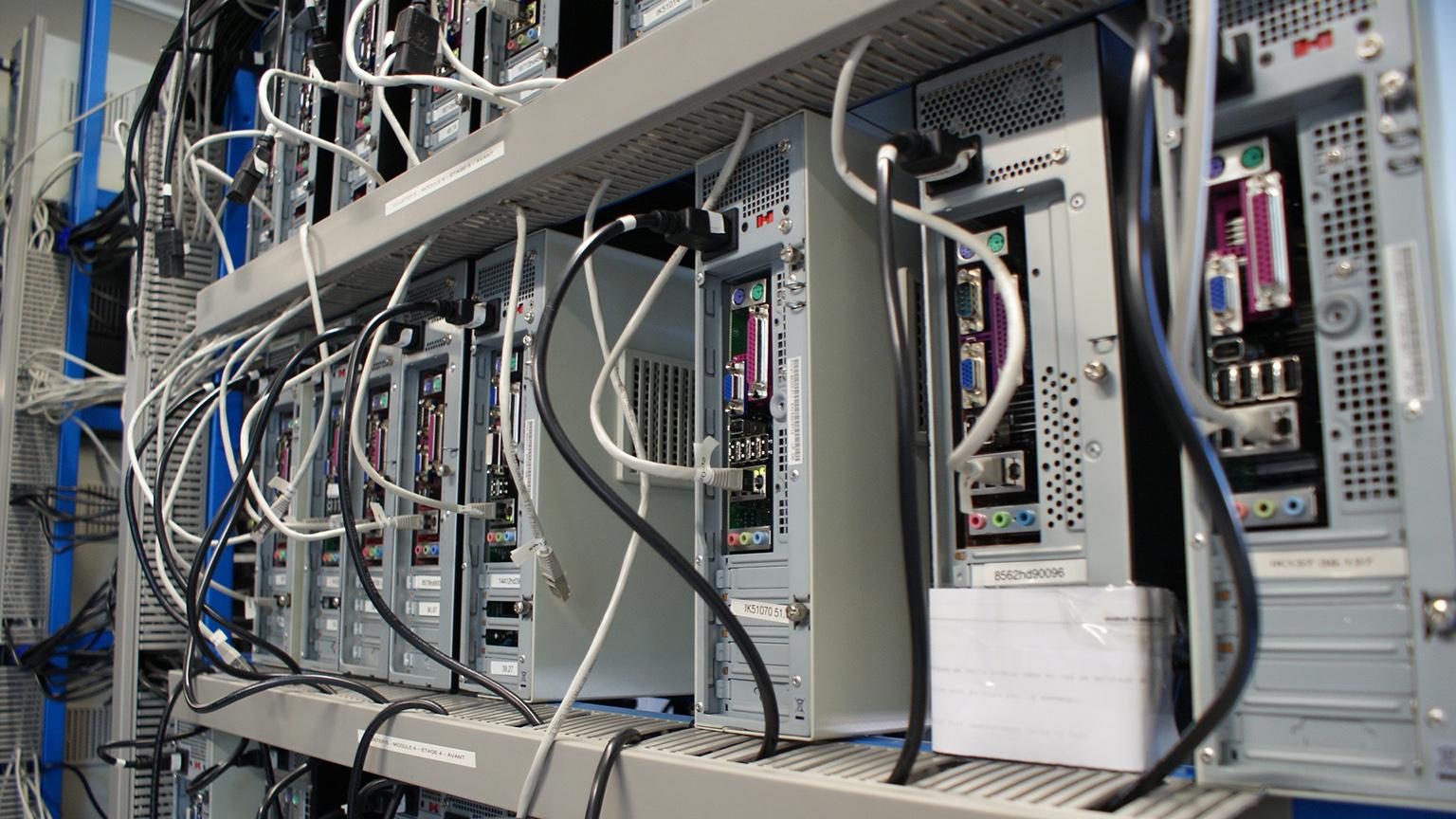The greater Chicago area ranks third in the country for data center capacity, but it’s not growing as fast as other major markets.
Those are the findings of a new report sponsored by the Illinois Chamber of Commerce Foundation and data industry professionals.
What are data centers? Simply put, they’re buildings that house tech infrastructure like servers and computers that store, process and distribute digital data – from serving up websites to number-crunching for e-commerce transactions to backing up multimedia and documents. In other words, crucial equipment for businesses, governments and organizations to operate.
According to the real estate firm CBRE, the number of data centers in the Chicago area grew at a rate of 7 percent from June 2017 to June 2018 while Phoenix, Northern Virginia and Atlanta saw growth rates of 26, 16 and 12 percent, respectively, over the same time period.
The report points to a lack of state tax incentives for companies to build data centers in Illinois.
“Hammond, Indiana was selected as the site for a new data center because of its proximity to Chicago and the ‘tax-friendliness’ of Indiana,” the report says. “Significant data center development in the Indiana suburbs of Chicago would likely slow growth in Illinois, especially in the Chicago suburbs.”
We spoke with University of Chicago assistant computer science professor Sanjay Krishnan to learn more about the role of, and need for, data centers.
First off, what is a data center?
A data center is a building that houses a large number of servers. These servers, you should really think of them as industrial-scale computers, the kind you’d have at home, but they’re designed to do tasks that we need done – like surfing websites, processing data, retrieving data, streaming videos. That’s really what they’re good at.
What are the primary duties of a data center?
 (foudefoot60 / Pixabay)
(foudefoot60 / Pixabay)
There are two aspects: the storage side and the computational side; the amount of data being stored and the infrastructure needed to process this data.
The kinds of things that we want to do with data nowadays are moving towards needing to be able to process data. We want intelligent applications like self-driving cars, like smart apps, smart homes and stuff like that, which requires a lot of processing and computing.
That’s what these data centers are very good at. They’re good at taking that data, not only storing it, but analyzing it. That’s what driving the arms race of tech companies trying to build these massive facilities.
What are some of the locational considerations for a data center?
You need people to run and maintain these data centers. There’s also a practical aspect to building them. There’s a lot of infrastructure that needs to happen. They require a lot of power and a lot of cooling. So they tend to be in areas where water is not a problem and where the temperatures are not too hot because computers generate a lot of heat. So there are a lot of civil engineering challenges with these centers.
As we create new data every day, are we going to eventually reach a spatial threshold for its storage?
That is part of the problem. Computers are not getting faster right now. We’re sort of hitting a limit on how fast a single computer is getting.
We’re seeing people scaling out. We’re sort of building computing infrastructure that is many small computers instead of one very big computer. We’re sort of hitting the physical limit – it’s called Moore’s law – a single computer isn’t getting very much faster.
That’s really what’s driving this thing. Data is growing. The number of people on the internet is also growing, but the single computer is not getting any faster. That’s why we need data centers. That’s why we’re housing them sort of like a power plant. We have to commoditize this because we can’t just hope that hardware is going to save you anymore, you have to scale out.
Do you think Chicago could do more to attract data centers?
We’re sort in a central location for many reasons. Not only for the infrastructure reasons, but also just the travel reasons. We have a ton of computer science that’s going on in the area. So there’s no shortage of manpower here. We have Northwestern, University of Chicago and the national lab system of Argonne.
We have a ton of interest in the area. I think maybe the critical mass has not been there or it’s been biased towards the coasts because that’s where these companies were all first founded.
Follow Evan Garcia on Twitter: @EvanRGarcia
Related stories:
5 Ways to Protect Yourself Against Data Breaches
P33: A Burnham Plan for Chicago’s Tech Future
How Technology is Changing the Face of Retail








